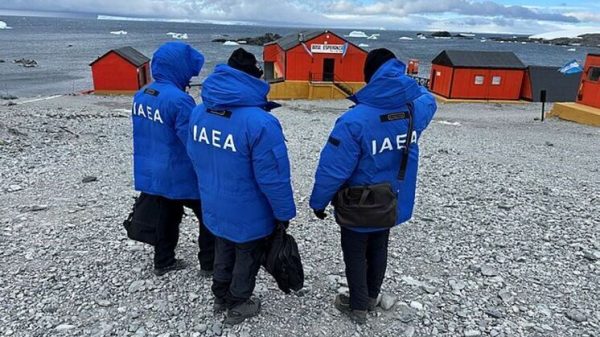
12 people died as flames engulfed the ICU ward in the Matei Bals in Bucharest
Credit: DANIEL MIHAILESCU
/AFP
When a fire broke out in an intensive care unit last November in the Romanian town of Piatra Neamt, most of the patients were too ill to move.
Only charred hospital beds remained — some 10 people had been left to die in the blaze.
Three months later 12 more people died as flames engulfed the ICU ward in the Matei Bals in Bucharest, the country’s top infectious disease hospitals.
The fires served as a tragic reminder that little has changed since a 2015 Bucharest nightclub blaze killed 64 people, an event that is now the subject of a critically-acclaimed Oscar-nominated film.
Despite outrage when it was released in Romania two years ago, the film has barely moved the dial in Romania, where rife corruption and chronic mismanagement is blamed for the disturbing trend.
“It’s a system where medicine is the last thing that’s important, the most important thing is how they divide power so they can steal the money,” director Alexander Nanau tells the Telegraph. “It isn’t something that should happen in a democratic country.”
Romania is a nation whose politics has been shifted more by lethal fires than perhaps any other in Europe.

Director Alexander Nanau follows a crack team of investigators at the Romanian newspaper Gazeta Sporturilor as they try to uncover a vast health-care fraud
The new documentary, handed two Oscar nominations this week, tells the story of a team of investigative journalists seeking the truth after the 2015 fire.
The journalists in the film discovered that more than half of the 64 who died after the nightclub fire did so in corruption-riddled state hospitals that were using useless, watered-down disinfectants.
Huge street protests erupted after its release with demonstrators chanting “Shame on you!” and “Assassins!” — while placards across the country carried a clear message: “Corruption Kills.”
“It’s great to have a Romanian film nominated for an Oscar, but it is sad that we are becoming known around the world for our lack of capacity for having a functional public system,” says Csibi Magor, a leadership and culture expert.
“We haven’t come a long way since Colectiv,” he adds.
Corruption remains endemic. Cash bribes for healthcare workers — known locally as ‘the envelope’ — are widespread, despite the government in recent years having raised doctors’ paltry salaries.
“When my mom was diagnosed with cancer, the doctor who performed surgery on her asked me for 1,500 euros,” said Madalin Sinion, a 40-year-old hotel worker in central Bucharest.
“In Romania we have a saying, ‘pray to god that you don’t need to go to hospital’ — because of the risk of catching infections inside the hospitals.”

A hospital in Piatra Neamt, where a fire killed 10 at a coronavirus disease intensive care unit
Credit: INQUAM PHOTOS /REUTERS
Romania’s new government is a coalition led by prime minister Florin Citu of the National Liberal Party, and it is just three months into a four-year term.
Pro-reform health minister, Voiculescu, who previously served in the same post for a few months in 2016 — has promised institutional change, including depoliticising the appointment of hospital managers and the construction of new hospitals.
Following the hospital fires, the authorities are seeking to access €50 million in EU Funds in order to improve patient safety in hospitals.
“Because we’re in the EU citizens are expecting services at least on par with the quality that you get in Germany or Belgium,” Vlad Mixich, a Romanian healthcare specialist, told The Telegraph. “But it is impossible to get the same quality of healthcare services by paying five to ten times less.”
Romania’s healthcare system is indeed chronically underfunded. It spends the least in the EU on healthcare relative to GDP at 5.2 per cent — almost half the EU average of 10 per cent.
In the last 30 years in Romania only two public hospitals were built. “We are talking about very, very old infrastructure,” says Mixich.
The enormity of the health minister’s task ahead cannot be underestimated.
“Colectiv was the first piece of a dominos game, and the domino pieces are still moving today — you have to wait until all the pieces fall down,” says Mixich.
“It may take a decade or even a generation.”






















































Свежие комментарии